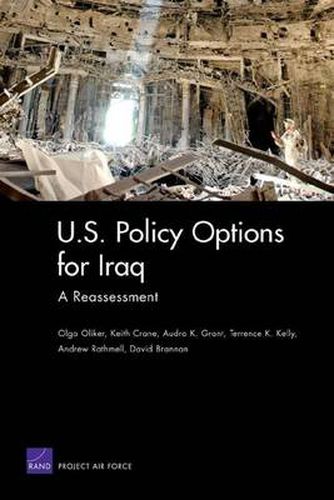Readings Newsletter
Become a Readings Member to make your shopping experience even easier.
Sign in or sign up for free!
You’re not far away from qualifying for FREE standard shipping within Australia
You’ve qualified for FREE standard shipping within Australia
The cart is loading…






Iraq is the most pressing national security issue facing the United States today. This book evaluates the costs and benefits of five alternative strategies the United States could pursue in Iraq. The authors argue that, as long as the United States remains in Iraq, policy actions must focus on improving the security of Iraq’s population by reducing violence. They offer recommendations for ways in which U.S. political, security, and economic policies in Iraq could be better geared to support this goal, though they emphasize the challenges inherent in this endeavor. Specific recommendations focus on embedding and vetting efforts for both forces and government structures and on targeting economic assistance more effectively. The authors also suggest policies that might be implemented if violence subsides-but that should not be undertaken unless and until it does. The book concludes with a discussion of next steps if the United States decides to withdraw from Iraq, arguing that the United States needs to prepare now to mitigate the effects of failure.
$9.00 standard shipping within Australia
FREE standard shipping within Australia for orders over $100.00
Express & International shipping calculated at checkout
Iraq is the most pressing national security issue facing the United States today. This book evaluates the costs and benefits of five alternative strategies the United States could pursue in Iraq. The authors argue that, as long as the United States remains in Iraq, policy actions must focus on improving the security of Iraq’s population by reducing violence. They offer recommendations for ways in which U.S. political, security, and economic policies in Iraq could be better geared to support this goal, though they emphasize the challenges inherent in this endeavor. Specific recommendations focus on embedding and vetting efforts for both forces and government structures and on targeting economic assistance more effectively. The authors also suggest policies that might be implemented if violence subsides-but that should not be undertaken unless and until it does. The book concludes with a discussion of next steps if the United States decides to withdraw from Iraq, arguing that the United States needs to prepare now to mitigate the effects of failure.